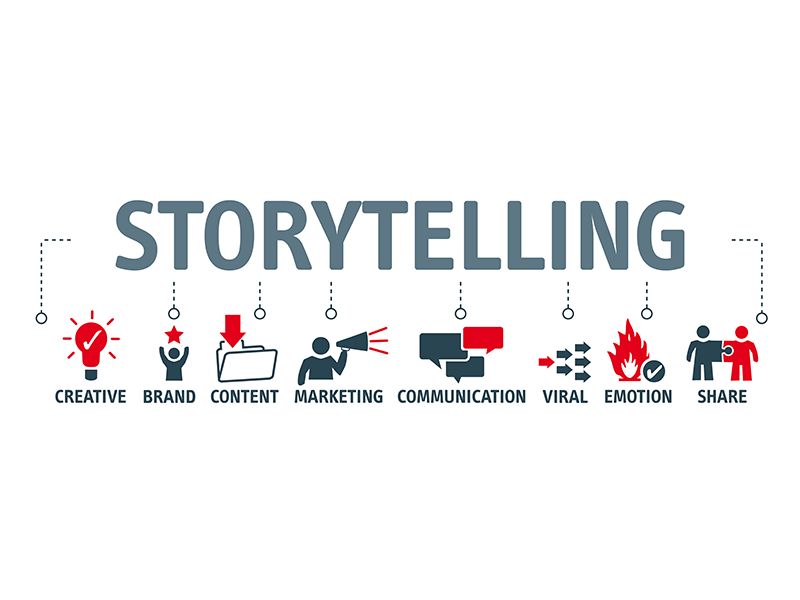The Power of Storytelling in Marketing and Branding

In the world of marketing and branding, where competition is fierce and attention spans are fleeting, the ability to stand out and create a lasting connection with your audience is a game-changer. One of the most potent tools at your disposal is the art of storytelling. Stories have the power to engage, captivate, and emotionally resonate with consumers, making them an invaluable asset for any business looking to leave a lasting impression.
The Psychology of Storytelling
Storytelling is not just a marketing technique; it’s deeply ingrained in human psychology. We are hardwired to respond to stories. They help us process information, remember it, and, most importantly, feel it. A well-crafted story can trigger emotions, create empathy, and establish a bond between your brand and your audience.
Read More : Why Marketing Matters in Business
Defining Your Brand’s Narrative
To harness the power of storytelling in your marketing efforts, you first need to define your brand’s narrative. What’s your origin story? What values do you hold dear? What problems does your brand aim to solve? These questions are the starting point for crafting a narrative that resonates with your audience.
Relatability and Connection
Storytelling humanizes your brand. When you share stories about the people behind your company or the challenges you’ve faced, you make your brand relatable. People are more likely to connect with the experiences and emotions you share in your stories.
Creating an Emotional Impact
Emotions drive decisions. When you tell a story that taps into your audience’s emotions, you create a connection that goes beyond the product or service you offer. Whether it’s a heartwarming tale of customer success, a story of overcoming adversity, or a humorous anecdote, the emotional impact of your story can linger in the minds of your customers.
Differentiation and Unique Selling Proposition (USP)
In a crowded market, your brand’s story can set you apart from the competition. Your story is unique to you, and it helps define your USP. Customers are not just buying products or services; they’re investing in a story, a promise, and an experience that your brand provides.
Consistency Across Platforms
Effective storytelling transcends platforms. It should be consistent across your website, social media, advertising, and customer interactions. A cohesive story reinforces your brand’s message and makes it easily recognizable and memorable.
Read More : The Power of Company Culture: Creating a Positive Workplace
Engagement and Call to Action (CTA)
Storytelling is a powerful way to engage your audience. It keeps them interested, captures their attention, and leads them to the ultimate goal: a call to action. Whether it’s signing up for a newsletter, making a purchase, or simply sharing your content, stories drive action.
Success Stories: Brands That Mastered Storytelling
Several brands have harnessed the power of storytelling effectively:
Nike: Nike’s iconic “Just Do It” campaign is a powerful example of brand storytelling. It’s about overcoming obstacles and achieving greatness.
Coca-Cola: Coca-Cola’s holiday commercials often revolve around themes of joy, unity, and celebration, creating a heartwarming and unforgettable narrative.
Apple: Apple’s brand story focuses on innovation, creativity, and challenging the status quo, making consumers feel like they’re part of a community of forward-thinkers.
In conclusion, storytelling is not just a buzzword; it’s a fundamental aspect of modern marketing and branding. By crafting a compelling narrative that resonates with your audience, you can create a memorable brand, build emotional connections, and ultimately drive engagement and loyalty. So, don’t just sell products or services—tell your story and watch your brand flourish.






